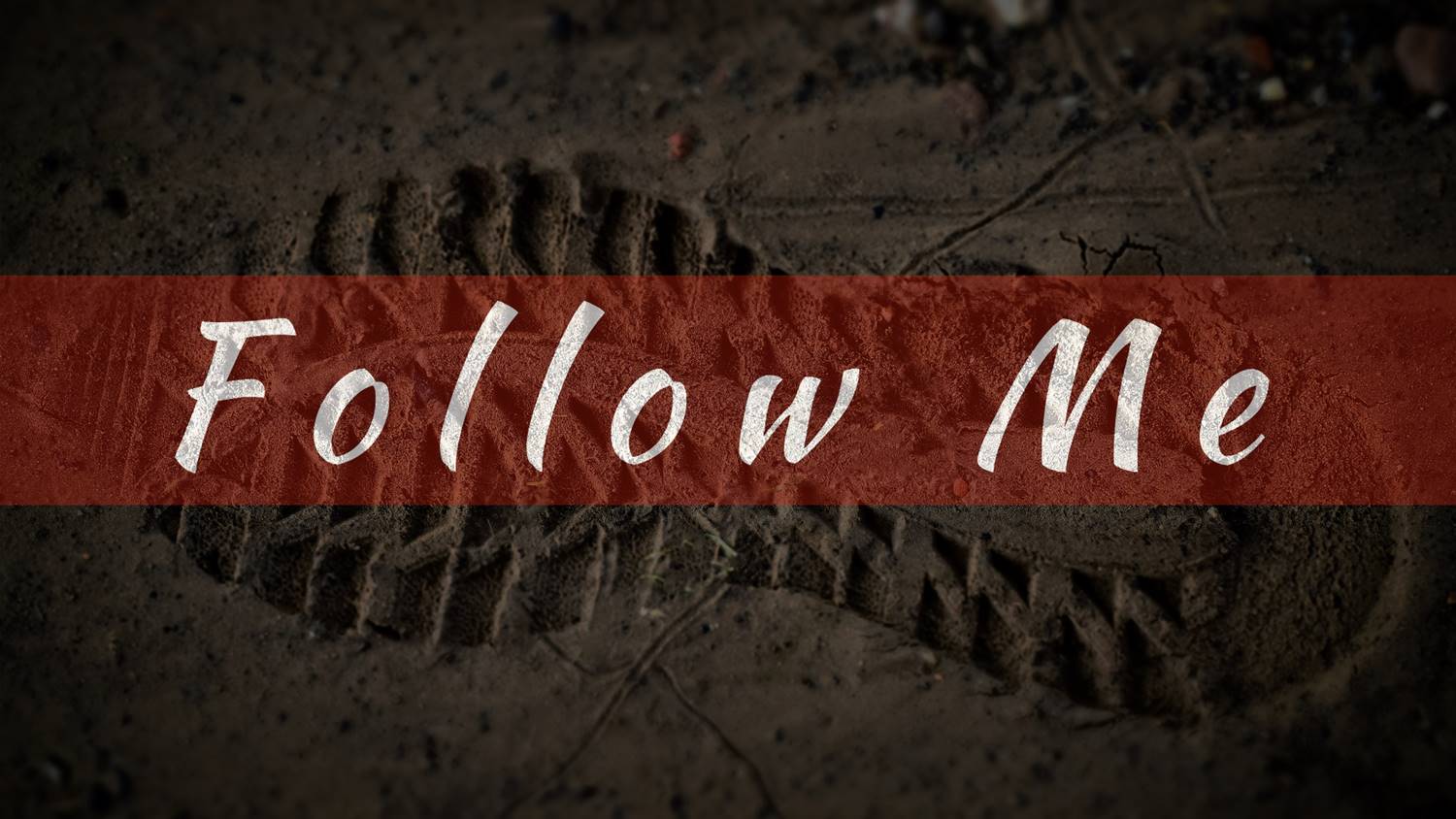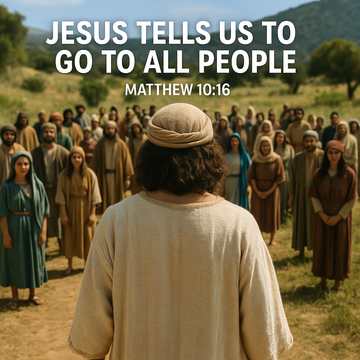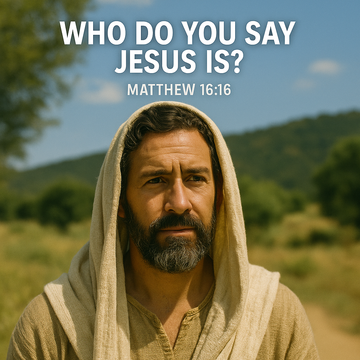Welcome to the first part of our series, "The Way."
This series is a time to think deeply about what it means to follow Jesus. The Great Commission we are all called to comes from Matthew 28:
(Matthew 28:19-20) Go and make disciples of all the nations, baptizing them in the name of the Father and the Son and the Holy Spirit. Teach these new disciples to obey all the commands I have given you. And be sure of this: I am with you…
Jesus calls us to teach new disciples to obey ALL that He has taught. This is a way to show full allegiance to Him.
At first, the followers of Jesus were not called Christians. That came later. The first way to identify as a disciple was to be called a "Follower of the Way." Acts 9. This comes from what Jesus called Himself:
(John 14:6) Jesus told him, “I am the way, the truth, and the life. No one can come to the Father except through me.
Therefore, this series is an attempt to discuss the characteristics or the values of "The Followers of The Way."
The way of a disciple of Christ is someone who lives as ALL of Christ for ALL OF LIFE.
Let's jump in.
Today's Text: Mark 12:28-31
(Mark 12:28-31) One of the teachers of religious law was standing there listening to the debate. He realized that Jesus had answered well, so he asked, “Of all the commandments, which is the most important?” Jesus replied, “The most important commandment is this: ‘Listen, O Israel! The Lord our God is the one and only Lord. And you must love the Lord your God with all your heart, all your soul, all your mind, and all your strength.’ The second is equally important: ‘Love your neighbor as yourself.’ No other commandment is greater than these.”
The first mark of a disciple is that WE LOVE GOD.
Overall Commentary: 🌎
The background and setting of this exchange are lost on us because of the current way we engage with teachers. Back then, after the teaching/lecture portion was completed, it was expected that there would be questions. Questions meant the audience had been listening and wanted to learn/apply what they had been taught. The questions were not disrespectful, even if their intentions were. They put Jesus to the question that rabbis had been grappling with for hundreds of years. Of the over 613 laws in the Old Testament, how can we make sense of it all? What is the greatest that could lead to following the others?
To answer the question, Jesus quoted a famous portion of Scripture called the "Shema." In Hebrew, this means "Hear" with an implied, "...and Obey." Practicing Jews are still supposed to quote this every morning and evening. It is a reminder of their covenant loyalty to God.
(Deuteronomy 6:4-10) “Listen, O Israel! The Lord is our God, the Lord alone. And you must love the Lord your God with all your heart, all your soul, and all your strength. And you must commit yourselves wholeheartedly to these commands that I am giving you today. Repeat them again and again to your children. Talk about them when you are at home and when you are on the road, when you are going to bed and when you are getting up. Tie them to your hands and wear them on your forehead as reminders. Write them on the doorposts of your house and on your gates. “The Lord your God will soon bring you into the land he swore to give you when he made a vow to your ancestors Abraham, Isaac, and Jacob. It is a land with large, prosperous cities that you did not build."
The purpose of this passage is to explain to them the preceding chapter, which was the Ten Commandments. The nation of Israel is getting ready to walk into the Promised Land. God is reminding them that their loyal love for Him in all things is what will carry them through. This is still the same today. It was thought that this section of Scripture is an exposition on the first four commandments because the first four focused on loving God. The following six focused on loving our neighbor.
The Ten Commandments
- The first three help us love God.
- The last six help us love our neighbor.
Therefore, Jesus is using the Shema to tell those listening that the way to follow all the Law (all commands of God) is to love God with our heart, soul, mind, and strength. This means to love God with all we have. Let's break it down.
Commentary.
Verse 20a. We love God with all our heart.
The first commandment:
(Deuteronomy 5:7) “You must not have any other god but me."
- Heart- The word for heart in the Hebrew language is someone's center of being. It would be a way of saying that we are to love the Lord our God completely and without reservation. This is what God is saying with the first commandment. We are never to have any other allegiance greater than Him.
Verse 20b. We love God with all our soul.
The first commandment:
(Deuteronomy 5:8) “You must not make for yourself an idol of any kind, or an image of anything in the heavens or on the earth or in the sea."
- Identity- The purpose of idols was to represent the gods. God did not want anything to resemble Him or anything else because He wanted them to find their identity in Him and not in anything else. It is easy to slowly identify with the representation of a thing rather than the original. Identity is a tricky thing that is often confused. That is why God wanted to keep it direct. God is saying, "Keep focused on the fact that you are Mine. Let that be your primary identity."
Verse 20c. We love God with all our mind.
The first commandment:
(Deuteronomy 5:11) "You must not misuse the name of the Lord your God. The Lord will not let you go unpunished if you misuse his name."
- Decisions/Representation- This verse has been misunderstood for a long time. Many times, we think it is a word we say that dishonors God. Actually, it is way more than that. This means to "carry His Name" incorrectly. It would be like someone saying they are you while they are robbing someone else. You would not like that at all. It would be a complete misrepresentation of your name. This is what happens when someone claims to be a Christ follower, yet treats others terribly. It causes people to say, "Is that how God is?" The Lord takes His Name and reputation seriously.
Verse 20d. We love God with all our strength.
The first commandment:
(Deuteronomy 5:12,15) “Observe the Sabbath day by keeping it holy, as the Lord your God has commanded you... Remember that you were once slaves in Egypt, but the Lord your God brought you out with his strong hand and powerful arm. That is why the Lord your God has commanded you to rest on the Sabbath day.
- Testimony- There were many reasons for the nation of Israel to have a weekkly sabbath. One of these reasons was to remember that God had given them a chance to rest. This was not always the case for their ancestors. Each week they rested, they were supposed to remember the goodness of God. One of the greatest ways we worship is by remembering and sharing the goodness of God with others.
Bottom Line.
The mark of a disciple is someone who loves God with all they have. We are loyal to God because He has always been loyal to us. He has never once removed His salvation from us. The nation of Israel was told the Scripture above because they were about to walk into unknown territory. Before they went in, God reminded them that it is His relationship with them that will keep them strong. The same is true for us today. Just like in the New Testament, when the disciples headed into a literal storm. Jesus came. When He did, He didn't talk with them about the weather. That was just a side note. He reminded them of their relationship. Here is His promise.
God's Promise:
(Matthew 14:27) But Jesus spoke to them at once. “Don’t be afraid,” he said. “Take courage. I AM HERE!”





















